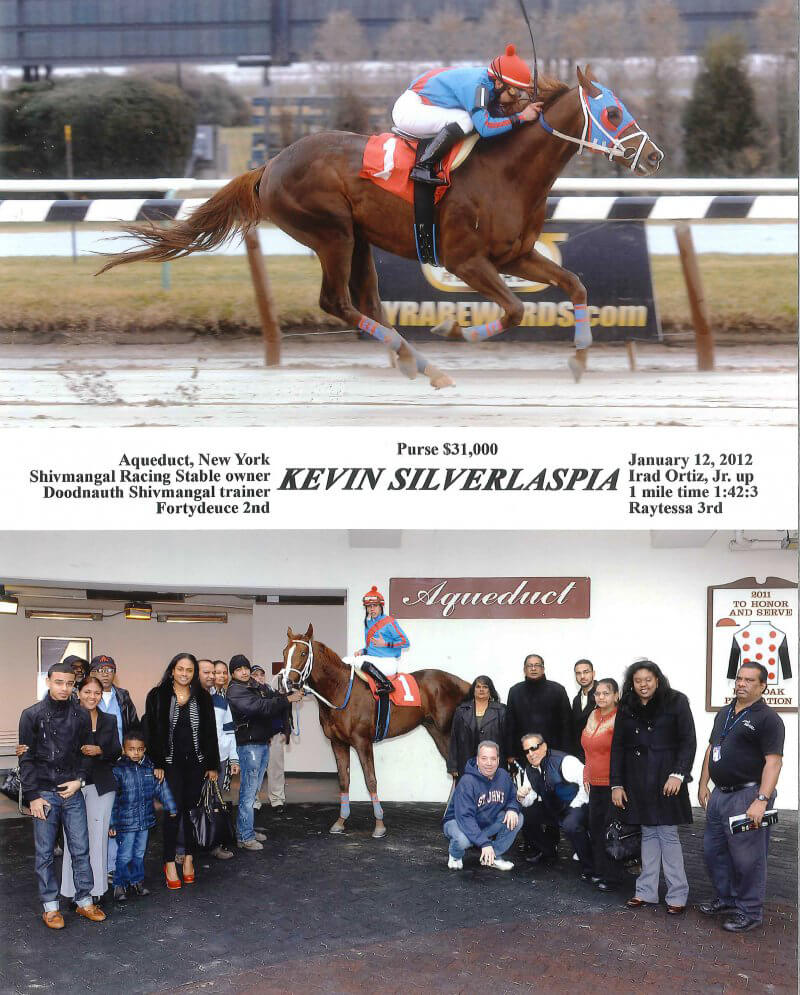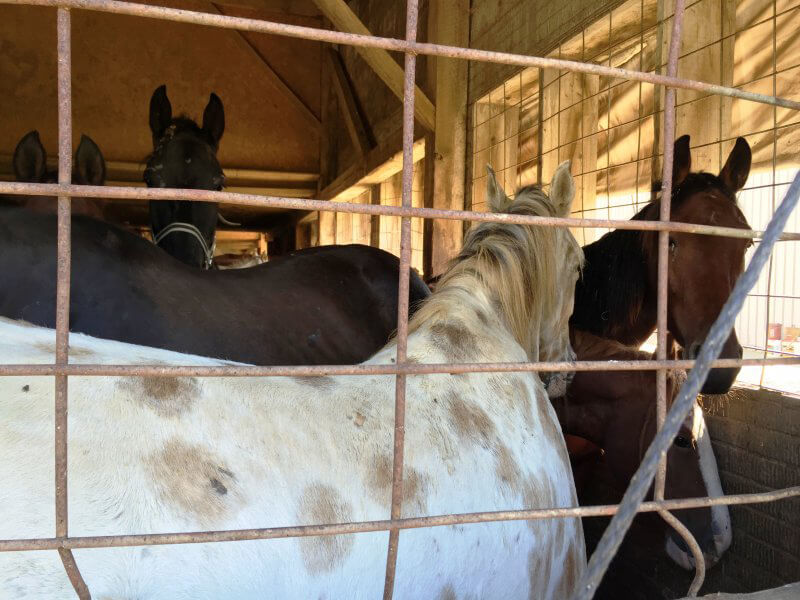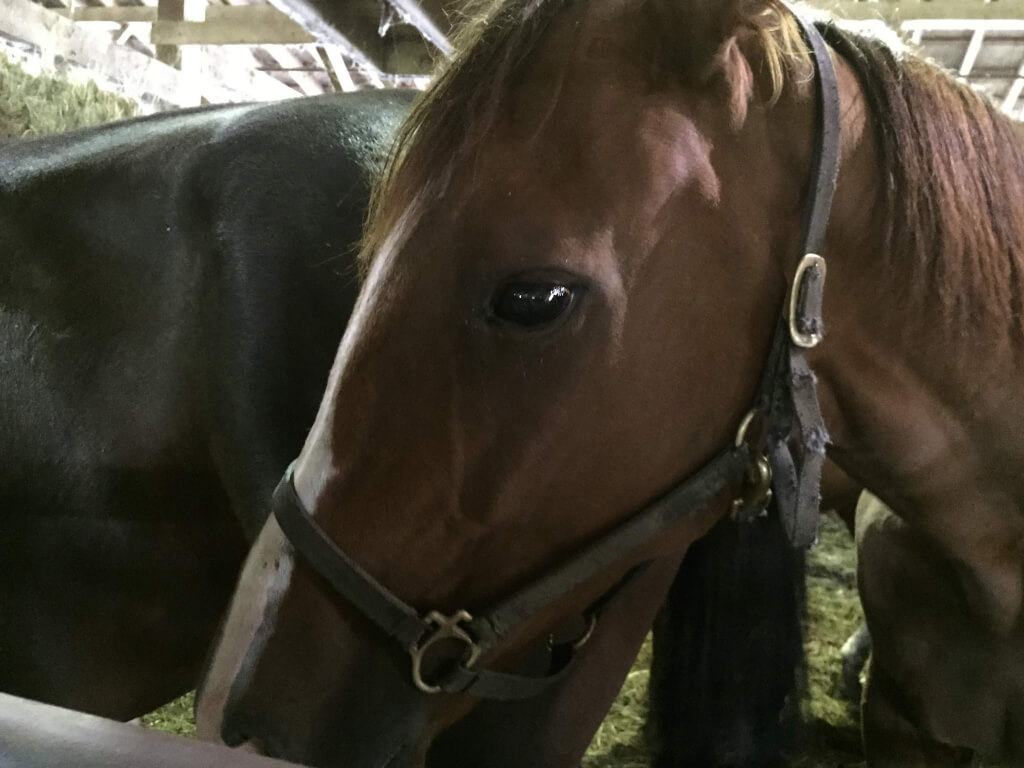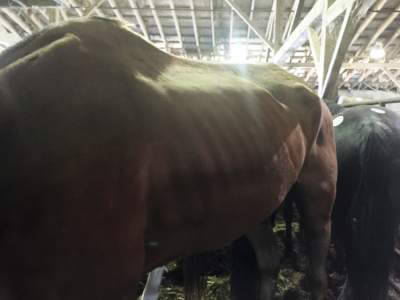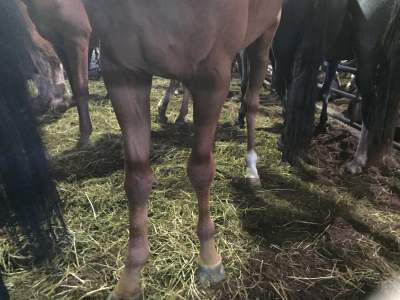Thrown Away Like Garbage
Kevin Silverlaspia had champion bloodlines. A direct descendant of Triple Crown winners Seattle Slew and Secretariat and a distant cousin of Kentucky Derby winner California Chrome, the Thoroughbred won or placed in more than a dozen races, earning a total of nearly $77,000 in winnings. But just seven months after running his last race, Kevin Silverlaspia had run out of time. An undercover investigation by an Ohio NBC affiliate turned up Kevin Silverlaspia among hundreds of other horses at a livestock auction in Sugarcreek, Ohio, where the operator admits that 75 percent of the horses are sold for slaughter.
Kevin Silverlaspia didn’t look like a winner anymore. He was emaciated, lethargic, and dejected. His front legs were covered with tiny round scars, an indication that he likely had been subjected to “pin-firing” or “freeze-firing”—a painful “treatment” for leg injuries that involves using chemicals or a red-hot probe to damage the tissue and provoke an inflammatory response. At just 5 years old, Kevin Silverlaspia was too broken and battered to race anymore, so he had simply been thrown away, like garbage.
Kevin Silverlaspia is just one of more than 120,000 horses who are sent to slaughter every year. During PETA’s investigation of top Thoroughbred trainer Steve Asmussen, our investigator managed to save a horse named Valediction just in the nick of time. Like Kevin Silverlaspia, Valediction had sustained a serious leg injury and was almost certainly destined to be sent to slaughter once he stopped making money.

Although there are no slaughterhouses currently operating in the U.S., that hardly slows the industry down—the horses are simply shipped to slaughter in Canada and Mexico. Kevin Silverlaspia’s last ride was likely to a slaughterhouse in Québec, a grueling 12-hour drive in a cramped truck during which he would never have been allowed to stretch his legs or had any access to food or water.
“It’s not illegal to kill horses to eat them,” PETA Vice President Kathy Guillermo told the NBC reporter. “It’s despicable and disgusting, and I think most Americans hate it, but it certainly goes on every single day. Lawmakers should take steps immediately to ban the export of horses from Ohio to slaughter.”
What You Can Do
Contact your congressional representatives and urge them to support the Safeguard American Food Exports (SAFE) Act, which would ban both the slaughter of horses in the U.S. and the export of horses for slaughter.

